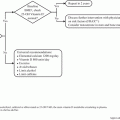(1)
Section of Neuropsychology, Department of Neuropsychology, The University of Texas MD Anderson Cancer Center, Houston, TX, USA
Chapter Overview
Many cancer survivors suffer from neurocognitive, emotional, and behavioral symptoms that interfere with their academic, vocational, or social pursuits. These impairments commonly include problems with memory, attention, and speed of thinking. However, many cancer survivors can enjoy improved levels of functioning if properly diagnosed and provided with the right support. A number of interventions can lessen the adverse impact of neurocognitive impairments on cancer survivors’ ability to function in daily life.
Introduction
Cancer patients experience a number of adverse symptoms, including cognitive impairment, fatigue, pain, sleep disturbance, and others, often in combination. Fortunately detailed symptom assessment is becoming increasingly recognized as a part of routine patient care by physicians, allied health care providers, and accrediting agencies. Cancer treatment may be considered successful only if these symptoms are managed, but successful management is hampered by insufficient knowledge of mechanisms. Interest in the mechanisms, patterns of symptoms, and interventions is growing as the survivorship community grows and must deal with these adverse effects of cancer and cancer treatment.
Cognitive dysfunction occurs in most cancer patients who are receiving active therapy and is frequently a symptom that heralds the diagnosis. In addition, cognitive dysfunction persists in a substantial number of patients long after treatment is discontinued. This type of cognitive dysfunction is popularly termed “chemobrain” or “chemo fog.” However, cognitive symptoms secondary to cancer and cancer treatment are part of a differential diagnosis of exclusion because a number of factors may be causal, and the specific intervention is based on the etiology of the cognitive dysfunction (Table 20.1).
Table 20.1
Potential causes of cognitive impairment in cancer survivors
Primary or metastatic cancer in the brain |
Indirect effects of non-brain cancer |
Neurotoxic effects of treatment |
Chemotherapy |
Radiation therapy |
Immunotherapy |
Hormonal therapy |
Surgery |
Effects of adjuvant medications |
Coexisting or preexisting neurologic and psychiatric illness |
Reactive mood and adjustment disorders |
Sensory impairment and general frailty |
Secondary gain |
In an effort to gather information directly from cancer survivors about their experience of “chemobrain” during and following treatment, an online survey conducted by the Hurricane Voices Breast Cancer Foundation specifically queried the impact of neurocognitive symptoms on a survivor’s ability to work. Nearly two-thirds of the 471 survey respondents (most of whom were survivors of breast cancer) reported that cognitive changes had an adverse impact on their work functioning or relationships at work, and 10 respondents reported leaving jobs or being terminated. Nearly 300 of the 471 respondents felt that their cognitive symptoms warranted discussion with a medical professional; however, their concerns were met with mixed reactions. Fifty-five percent of respondents felt that their oncologist was understanding, but 42% felt that their oncologist’s response was dismissive or indifferent. Only 10% were offered assistance; 6% of respondents had neuropsychological testing and less than 8% were referred for an intervention for their cognitive symptoms. The authors concluded that “Despite the pervasive impact on patients’ lives, cognitive changes are not adequately acknowledged and addressed by healthcare providers” (Hurricane Voices Breast Cancer Foundation 2007). Oncologic professionals’ lack of familiarity with research demonstrating that brain function is affected by treatment was cited as a potential factor responsible for the current state of affairs. However, assessment of cognitive function in cancer survivors is becoming more routine. For many patients, addressing cognitive problems that existed before the start of treatment is important, and the underlying cause can be proactively addressed. In addition, cognitive testing is increasingly becoming an endpoint in clinical trials. In this way, the effect of new agents or treatments on brain function can be evaluated.
Assessment of Cognitive Symptoms: The Role of the Neuropsychological Evaluation
For cancer survivors with treatment-related neurocognitive sequelae preventing or limiting successful return to work, neuropsychological assessment to examine strengths and weaknesses and to assist with intervention planning is indicated. Within the setting of oncology, neuropsychological evaluation provides a quantitative assessment of the cognitive and neurobehavioral symptoms that may arise as a consequence of cancer, treatment, or coexisting neurologic or psychiatric comorbidities. Brief screens of global neurocognitive dysfunction, such as those afforded by the Mini Mental Status Examination, are sensitive to profound cognitive impairment, which is rarely seen in cancer survivors. However, such screens are not sensitive to the types of neurocognitive disturbances most frequently seen in individuals with cancer, making them inappropriate when the purpose of the evaluation is to assist with decisions about returning to work and planning appropriate intervention strategies. Sole reliance on patient self-reporting is also problematic, because self-reported cognitive symptoms tend to correlate more significantly with indices of fatigue and mood than with objective evidence of cognitive impairment, as assessed by standardized neuropsychological testing.
Stay updated, free articles. Join our Telegram channel

Full access? Get Clinical Tree




